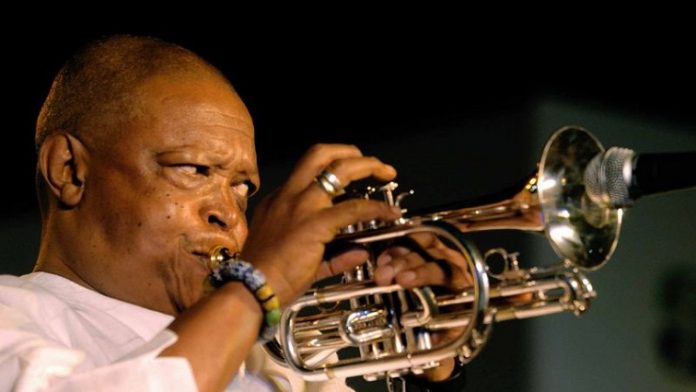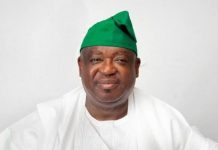The psalmist says there is a time to live and a time to die. Yes, for the iconic South African trumpeter and anti-apartheid campaigner, Hugh Masekela, the time to succumb to prostate cancer at 78, came last week.
Masekela, a thorn in the flesh of the apartheid authorities, went into exile in 1961, living in London and New York where he honed his trumpet alongside some of his heroes like Miles Davis.
But he enthusiastically lent his voice to the political struggle, with albums such as Americanization of Ooga Booga. Masekela travelled the continent, performing in Accra, recording in Gaborone and touring with Paul Simon’s Graceland, crossing borders as he did genres.
In a career that spanned decades, Masekela performed alongside musicians such as Miriam Makeba, Abdullah Ibrahim, Fela Anikulapo-Kuti and Harry Belafonte. Like his contemporaries, Masekela’s performance was closely tied to his political beliefs. His music became the backdrop to the struggle against apartheid, through songs like Bring Back Nelson Mandela and Soweto Blues.
When he returned to South Africa, his music continued to tell the story of life in the enclave, notably the struggle of miners brought from around southern African to work in Johannesburg’s gold mines through the poignant Stimela.
Masekela’s last public performance was scheduled for November last year alongside Zimbabwean musical legend Oliver Mtukudzi and a host of young musicians, but it was cancelled due to ill health. Masekela began treatment for prostate cancer in 2008, and was back on stage as soon as his strength allowed. In March 2016, however the cancer returned and had started to spread, according to a statement Masekela released last year.
Dissatisfied by what he saw as a growing complacence in South Africa’s political and socio-economic landscape, he continued to speak out about the poverty of the black majority, preserving African culture and South Africa’s high rates of violence against women. “We lost our sense of outrage after we gained the vote,” Masekela said in one of his last televised interviews. Even as he was about to bow out, he held strongly to his nationalistic views.


















